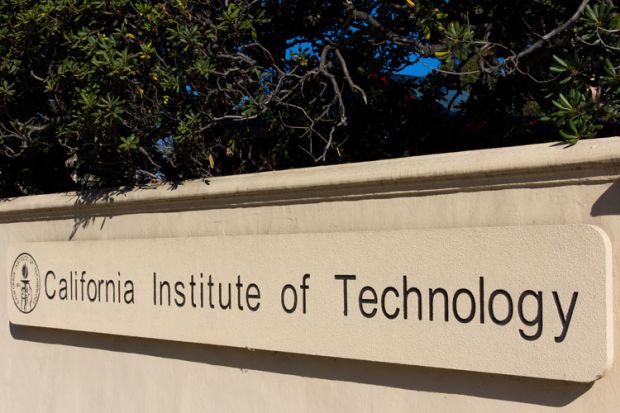Caltech Undergrads, Grad Get Fulbright Scholarships
Undergraduates Mohini Misra, Margaret Sui, Arielle Tycko, and Shalini Kurinchi-Vendhan, as well as graduate student Zachary Sercel, have been selected to receive Fulbright scholarships.
The U.S. Fulbright Program, created by the U.S. Congress in 1946, is a cultural exchange program that offers grants to students who wish to perform research or pursue creative activities abroad.
Misra, who studies computer science and biology, will attend the Technical University of Munich and work on integrating DNA/RNA-based logic circuits into cell-like systems. The larger goal of this work “is to attain more sophisticated control over biological components that depend on information in nucleic acids, such as CRISPR-Cas systems,” Misra says.
After her fellowship, Misra will attend Stanford University to pursue a PhD in bioengineering.
Sui, a bioengineering major, will work with molecular systems biologist Sten Linnarsson during her fellowship at the Karolinska Institute in Stockholm.
“I have always been interested in developing new cancer therapeutics,” she says. “I will get the chance to continue targeting cancer cells, specifically glioblastoma, which is an aggressive brain cancer.”
Sui plans to enter an MD/PhD program and train as a physician-scientist on completion of her fellowship.
Arielle Tycko, who studies computation and neural systems, will attend the Vrije Universiteit Brussel in Belgium and work on computational protein engineering to develop a novel protein for a syphilis vaccine.
Her long-term goal, she says, is to pursue an MD/PhD and continue her research using computation and machine learning for therapeutic development and then implement her research directly in clinical settings.
In the near term, she says she is excited to further her experience in the protein engineering field during her Fulbright year. “I am passionate about research that lies at the intersection of computation and medicine,” she says.
Kurinchi-Vendhan, who works with astrophysical simulations of galaxies and dark matter, will attend the Max Planck Institute for Astronomy in Heidelberg, Germany, to perform research on “jellyfish galaxies,” or galaxies that leave behind trails of stars and gas as they move through space, giving them their signature namesake appearance.
“Very early on in my time at Caltech, I knew that I was passionate about using science to tell the story of our universe. Astrophysical simulations are a great way of visualizing and communicating this story,” she says.
After leaving the Max Planck Institute in Astronomy, Kurinchi-Vendhan plans to pursue a PhD in astrophysics, continuing to explore her interests in astrophysical simulations and science communication.
Sercel, a chemistry graduate student, will study as a postdoctoral scholar at the Technion–Israel Institute of Technology developing new chemical methods to assemble complex molecular architectures with potential applications in the synthesis of natural products, materials, and pharmaceuticals.
“Caltech has been a very open, friendly, and collaborative place to do research,” he says, adding that working at Caltech under Brian Stoltz, Victor and Elizabeth Atkins Professor of Chemistry and Heritage Medical Research Institute investigator, offered him “an incredible amount of freedom to pursue interesting challenges.”
After his tenure at Technion, Sercel plans to stay in academia: “My dream is to run a research group at the intersection of total synthesis, synthetic methodology, and organometallic chemistry.”

